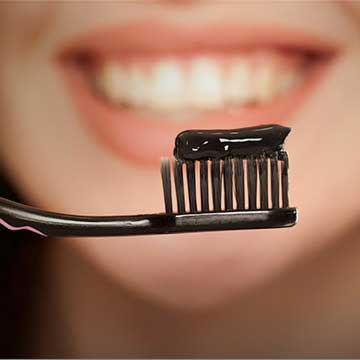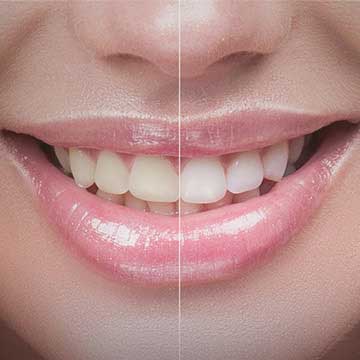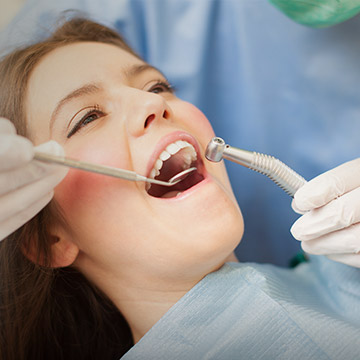Problems with your jaw can disrupt even the simplest pleasures. It makes enjoying your favourite meal, having a conversation, or simply yawning a pain. TMJ disorders affect the temporomandibular joint that connects your jawbone to your skull, and they can make daily routines feel anything but routine.
In some cases, mild TMJ symptoms may go away on their own, but persistent or worsening discomfort often requires professional attention. Your dentist can help you address this frustration so you don’t have to struggle through the day.
Causes & Symptoms of TMJ
Temporomandibular joint disorders (TMD) can arise from various causes, which is one of the reasons it can be so difficult to treat. You first need to understand what’s contributing to the issue to find relief. Some of the most common triggers include:
- Teeth grinding and clenching (bruxism): Excessive force on the joint can lead to strain and discomfort.
- Joint injury or trauma: Impact to the jaw can damage muscles and ligaments.
- Arthritis: Wear and tear or inflammation can affect the temporomandibular joint.
- Stress: Tension can cause muscle tightness and clenching, which can exacerbate TMJ issues.
TMJ symptoms can vary widely in intensity and presentation. Common signs include:
- Jaw pain or tenderness
- Clicking or popping sounds when opening or closing your mouth
- Limited range of motion in the jaw
- Earaches or a sensation of fullness in the ear
- Headaches or neck pain
By understanding the causes, you can better identify what might be fueling your discomfort. Then, it all comes down to feeling better.
Can TMJ Resolve on Its Own?
TMJ symptoms often come and go and can even get better on their own, depending on what’s causing them. Factors like ongoing stress, inflammation, or habits like clenching and grinding play a significant role in determining whether your symptoms will fade without treatment.
If the issue is mild or short-lived, it may resolve on its own, especially if you take steps to relax your jaw or manage stress. But if the pain sticks around for weeks or starts affecting your daily life, it’s time to see a professional. Ignoring TMJ can lead to chronic pain and joint damage. It’s better to let your dentist know and get it all sorted out.
When Should You Seek Professional Help?
Knowing when to get help is just as important as understanding the condition itself. Here are key indicators that it may be time to consult a dental professional:
- Pain or stiffness persists for more than a few weeks.
- Jaw movements feel uncomfortable or restricted.
- Symptoms like ear pain or headaches begin to affect your quality of life.
- Grinding or clenching habits worsen due to stress or sleep issues.
If any of these resonate, early diagnosis can make a world of difference in treatment outcomes. A skilled professional can provide tailored solutions to address the root cause before your symptoms become more severe.

Treatment Options for TMJ
Treating TMJ often depends on how severe your symptoms are and what’s causing them. Some cases just need small changes to daily habits, while others may require more involved care. Here’s a quick look at some options:
- Short-term medications: Muscle relaxants and anti-inflammatory medication can help ease pain and reduce inflammation.
- Physiotherapy and massage: Gentle exercises and targeted therapy can loosen up tense muscles around your jaw.
- Mouthguards: Custom mouthguards protect your teeth and jaw from clenching or grinding, especially while you sleep.
- Soft diet and heat therapy: Switching to softer foods and using heat packs can ease strain and calm inflammation.
- Botox injections: Not just for fine lines and wrinkles! Botox injections can relax overactive jaw muscles, helping reduce tension and discomfort.
With so many options, there’s no need to deal with unnecessary pain or limitations—relief is out there!
Self-Care Strategies for Managing TMJ
Following some simple strategies can reduce strain on your jaw and generally help you get through the healing process with less pain. Here’s what you can do to keep discomfort in check:
- Jaw awareness: Be mindful of clenching throughout the day. Practicing relaxation techniques or stretching exercises can help reduce tension.
- Modify your diet: Stick to softer foods that are easier on your jaw muscles. Things like soups, smoothies, and mashed vegetables are great choices for a short period of time if needed.
- Use heat or cold packs: Apply heat to relax tight muscles or cold to reduce inflammation, depending on your needs.
- Practice good posture: Proper alignment can reduce pressure on your jaw and neck.
- Destress daily: Stress plays a significant role in TMJ issues. Incorporate calming activities like yoga, deep breathing, or regular exercise into your routine.
Making these small adjustments can go a long way toward minimizing discomfort as you work toward a lasting solution.
Smile Without Jaw Pain!
TMJ doesn’t have to control your daily life or limit the things you enjoy. Whether your symptoms improve on their own or require professional treatment, there are plenty of pathways to relief. Don’t wait for pain to dictate your routine when solutions are just a consultation away.
At Otara Dental, we’re passionate about helping our patients get back to feeling good. Our treatments are personalized to your needs and delivered in a welcoming, comfortable environment. Our experienced team is here to help you explore your options and guide you toward the relief you deserve. Call today to book a consultation and take the first step to relieving jaw pain!









